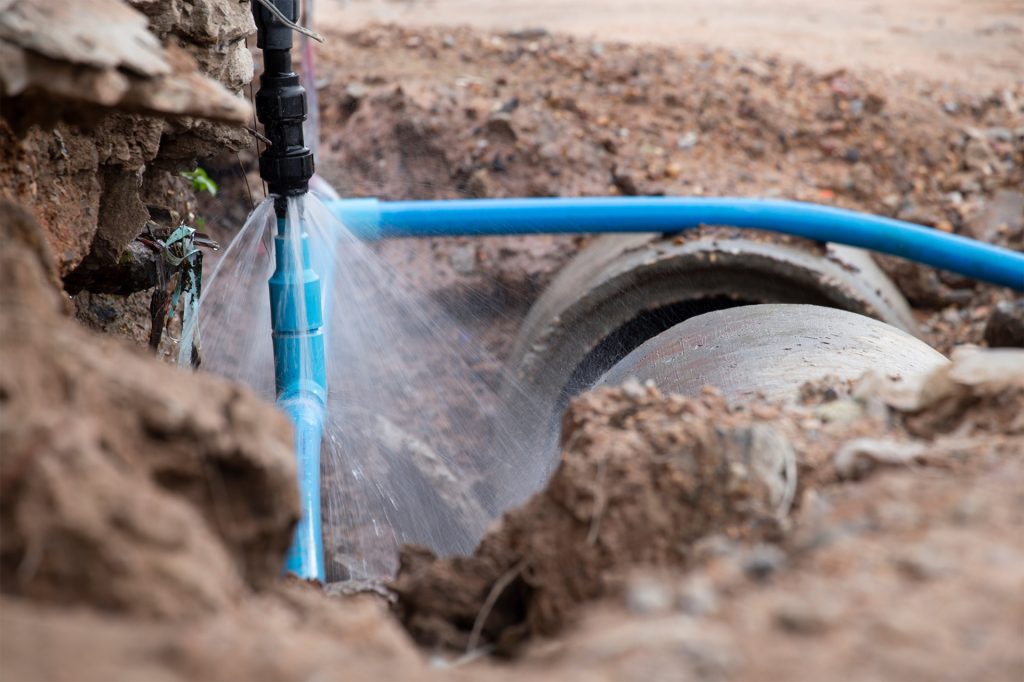Dealing with a sewer backup can be messy and stressful. It can potentially damage your property and pose health risks. Knowing how to prevent a sewer backup can save you from these hassles and protect your home and family.
Here’s a guide to help you prevent sewer backups and know when to find Marietta sewer line repair.
What to Do in Case of a Sewer Backup
First and foremost, safety is paramount when dealing with a sewer backup. Here are crucial steps to take if you encounter one:
- Do not enter areas where there could be live electrical current. Water and electricity are a dangerous combination. Additionally, depending on the extent of damage caused by the backup, be cautious of possible gas leaks.
- Immediately contact a licensed plumbing professional or sewage cleanup service. These experts have the necessary equipment, knowledge, and experience to handle sewer backups safely and effectively.
How Do Sewer Backups Happen?
Understanding the causes of sewer backups is key to preventing them. Sewer backups can occur due to various reasons, including:
- Blockages in the sewer line. These blockages can be caused by a buildup of grease, hair, soap scum, food particles, and even tree roots.
- Excess water can overwhelm the sewer system during heavy rainstorms or floods, leading to backups.
- Aging sewer pipes can deteriorate over time, leading to cracks, leaks, and collapses, which can cause backups.
Signs of a Sewer Backup
Knowing the warning signs can help you detect a potential sewer backup early:
- Multiple Drains Backing Up: If multiple drains in your home, such as sinks, toilets, and showers, are backing up simultaneously, it could indicate a sewer backup.
- Unpleasant Odors: Foul odors from drains or the area around your home could indicate sewage backup.
- Gurgling Sounds: If you hear gurgling or bubbling sounds from drains when using water fixtures, it may indicate a blockage in the sewer line.
Maintenance Tips to Prevent Sewer Backups
Here are proactive steps you can take to prevent sewer backups and maintain a healthy plumbing system:
- Ensure that old or worn-out sewer trap plugs are replaced promptly. These plugs prevent sewage from backing up into your home.
- Avoid flushing non-biodegradable items such as paper towels, diapers, feminine hygiene products, and grease down the toilet or drain. Dispose of these items properly in the trash.
- Schedule regular inspections of your sewer lines by a professional plumber. This can help identify and address potential issues before they lead to backups.
- If trees are near your sewer lines, consider root barriers or periodic root trimming to prevent roots from infiltrating and clogging the pipes.
- During heavy rainfall, reduce water use to lessen the strain on the sewer system.
- Cooking grease and oil should be disposed of by letting them solidify in a container and then thrown in the trash. Do not pour grease down the drain; it can solidify and create blockages.
Following these preventive measures and being vigilant for signs of sewer backups will minimize the risk of experiencing a messy and costly sewage backup in your home.
Quick action and professional assistance are crucial in safely and effectively handling sewer backups. Prioritize regular maintenance and responsible use of your plumbing system to protect your property and ensure a healthy living environment for you and your family.
Contact HM Plumbing today for any sewer line repair in Marietta, GA. Serving with Integrity.

